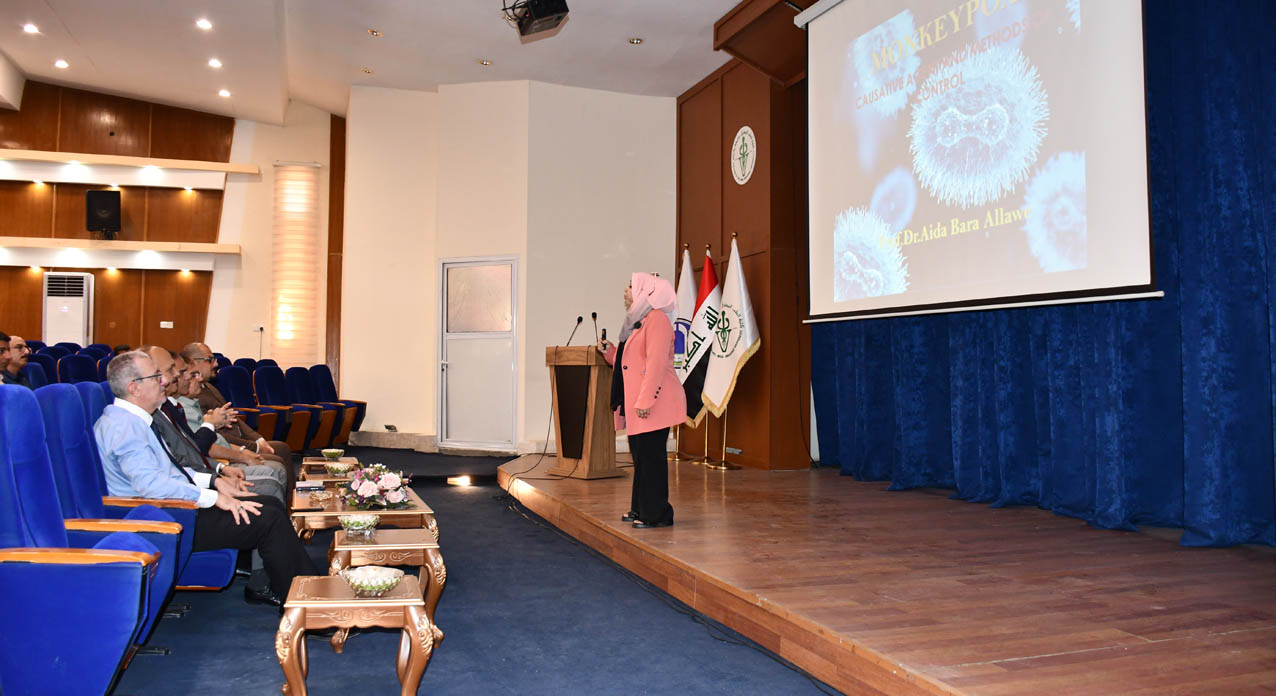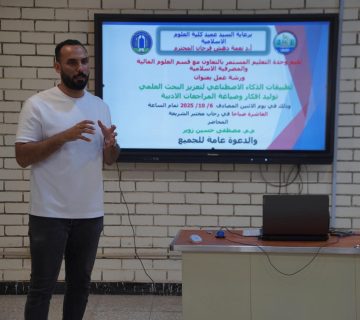The College of Veterinary Medicine at the University of Baghdad held an awareness symposium on the risks of monkeypox, a zoonotic disease that affects both humans and animals. The symposium was attended by several faculty members and graduate students.
The aim of the event was to educate attendees about the causes of the disease, its modes of transmission, symptoms, and prevention strategies. The lecture covered various topics, including an introduction to the disease as a highly contagious viral infection caused by a virus from the orthopoxvirus family. It is zoonotic, meaning it can be transmitted from animals to humans, with cases often reported near tropical rainforests where animals carrying the virus are found. The virus was first discovered in Denmark in 1958 in monkeys kept for research, and the first human case of monkeypox was recorded in 1970 in the Democratic Republic of the Congo.
The activity also discussed the types of the virus, noting that there are two strains of monkeypox virus. Clade I, the first type, is significantly more lethal, with a higher percentage of infected individuals experiencing severe illness or death compared to Clade II. Clade Ib, a branch of the first type, is primarily responsible for outbreaks in the Democratic Republic of the Congo and neighboring countries, particularly affecting children. Additionally, the lecture addressed prevention, treatment methods, and available vaccines.
The symposium provided recommendations for treating monkeypox, emphasizing the importance of caring for skin rashes, managing pain, and preventing complications. Early and supportive care is crucial for symptom management and avoiding further issues. Receiving the monkeypox vaccine can help prevent infection, ideally administered within four days of exposure to an infected person (or within 14 days if no symptoms are present).










